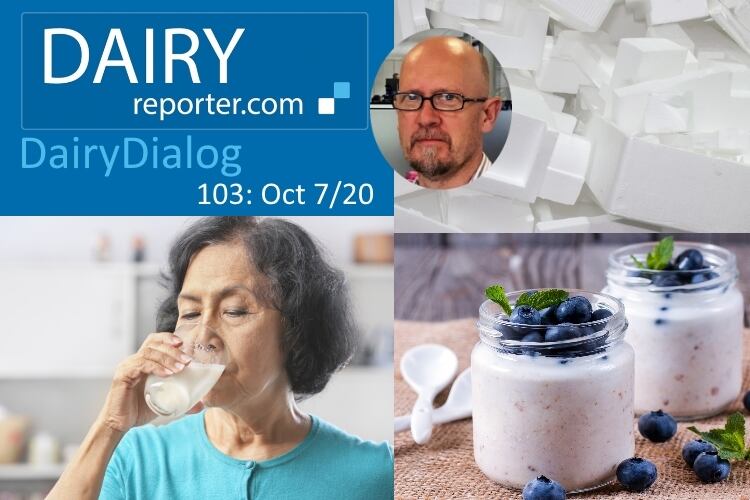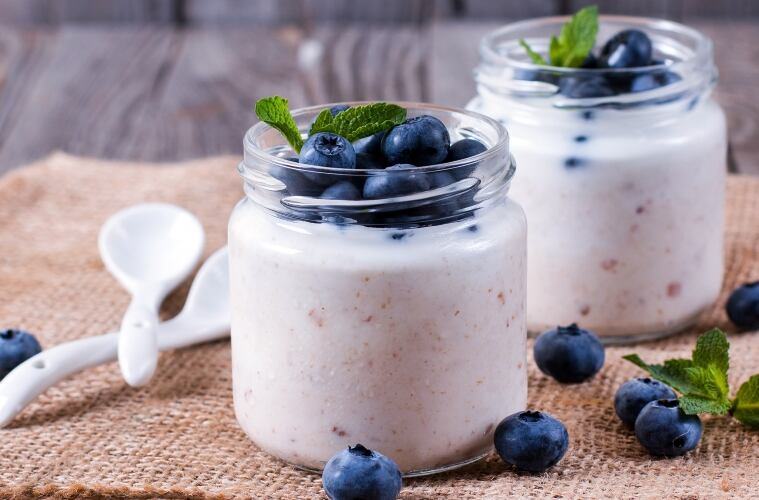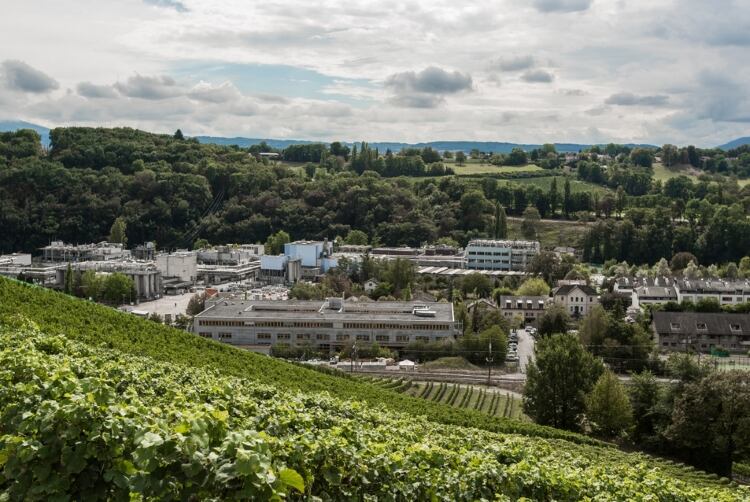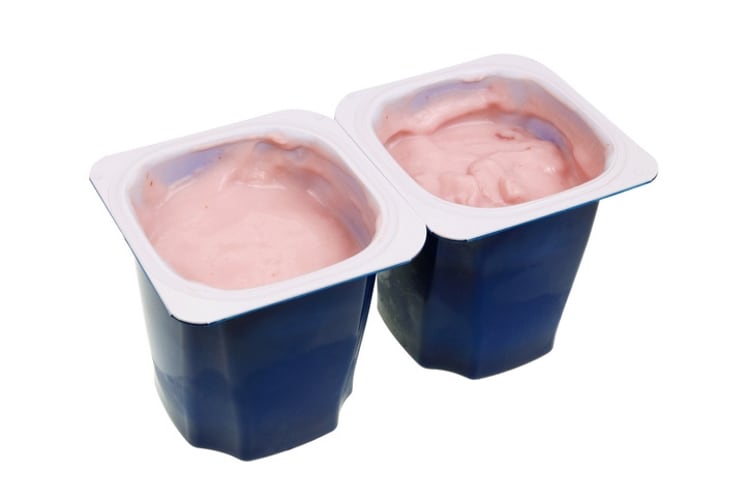We also have our weekly look at the global dairy markets with Liam Fenton from StoneX.
Pics: Firmenich; Getty Images/Sayan_Moongklang; Getty Images/AtnoYdur
Firmenich and Novozymes partner on sugar reduction
Firmenich, the world’s largest privately-owned perfume and taste company, and Danish biological solution leader Novozymes, have launched their new, jointly-developed natural sugar reduction solution: TasteGEM SWL with Saphera lactase.
The technology brings natural taste performance in dairy products, enabling up to 50% sugar reduction in yogurt and other dairy products without the use of sweeteners. The solution is available through Firmenich affiliates in all major markets worldwide.
“We are seeing a significant shift, with consumers ranking reducing sugar as the #1 health consideration in their food and beverage choices,” said Emmanuel Butstraen, president of flavors at Firmenich.
“Building on our industry leading, proprietary sugar reduction capabilities, we have joined forces with Novozymes, to develop uniquely optimized dairy solutions for our customers that are both delicious and nutritionally balanced.”
“We are happy to be in this joint collaboration with Firmenich, which has quickly resulted in bringing a new, unique innovation to the market. Our companies’ combined strengths help dairy companies improve their existing products and develop new ones for the growing number of health-conscious consumers looking for dairy products with improved nutritional properties including less sugar and calories,” said Claus Crone Fuglsang, chief science officer at Novozymes.
A synergy is achieved when Firmenich’s sugar reduction solution TasteGEM is combined with lactase solution Saphera. The patent-pending technology unlocks the naturally occurring sweetness of milk and bridges the sensorial gaps that arise when added sugar is removed. The companies said TasteGEM SWL with Saphera lactase delivers “a superior tasting product and enhanced eating experience with authentic sweetness and increased creaminess and the added benefit of lower lactose levels.”
Last year, Firmenich sugar reduction technologies helped customers save an estimated 300,000 metric tonnes of sugar, equating to over 1 trillion calories.
VTT to study recycling of polystyrene back to raw-material
The bulk of collected EPS (expandable polystyrene) and other polystyrene waste still ends up incinerated.
Finnish research institute VTT, along with its partners, is embarking on a two-year multitechnological recycling for polystyrene (MoPo) project to learn how recycling of polystyrene could be substantially increased by reshaping its collection and handling.
The goal is to convert waste into pure polystyrene or styrene monomers used in other plastics and chemicals.
The global polystyrene market was worth €36bn ($42bn) last year, and the market is expected to grow by 10% per year over the next few years. At the same time, there’s a need to reduce the use of fossil raw materials, such as crude oil. This is why recycling of crude-oil-based polystyrene will inevitably become increasingly important, VTT said.
Polystyrene is typically used in its hard form in containers, such as yogurt pots, and as a foam known as EPS when insulating or damping properties are needed. Both types can be mechanically recycled, which means they can be moulded into new polystyrene products by melting the material.
The amount of collected polystyrene waste is, however, quite small in Finland, so it usually ends up incinerated. Collection of EPS is especially challenging, as EPS takes up a lot of space for its weight and crumbles and stains easily.
“In the new MoPo project our target is to offer a technically and economically feasible solution to the recycling of polystyrene waste in Europe. We will explore the state of polystyrene production, consumption and recycling in Finland and in selected European countries. We will also develop a logistics model for collecting polystyrene waste and methods for its mechanical and chemical recycling,” Muhammad Saad Qureshi, senior scientist at VTT, and leader of the MoPo project, said.
As not all polystyrene waste is suited for mechanical recycling, thermochemical recycling methods will be developed in the MoPo project as well.
In thermochemical recycling, polystyrene is pyrolyzed, i.e., heated in the absence of oxygen, and thus disintegrated into shorter polymer chains and even to styrene monomers. The resulting pyrolysis oil, upon purification, can replace oil fractions when producing for example aromatics, latex, polystyrene and carbon black.
A method will also be developed to allow safe utilization of polystyrene waste containing flame retardants and other hazardous components.
The MoPo project led by VTT has a total budget of €964,000 ($1.1m), which will be covered by Business Finland, VTT and research and business partners: Aalto University, L&T, HSY, Finnfoam, PS Processing, CH-Polymers, Pohjanmaan Hyötyjätekuljetus and Suomen Uusiomuovi.
“Together with our partners we can develop the whole value chain involved in polystyrene recycling. We expect that the project will substantially increase recycling opportunities and create new businesses. Our goal is to lead the way in polystyrene recycling Europe wide,” Qureshi said.
During the project, participants will demonstrate various processes such as separate collection of polystyrene waste, handling of polystyrene waste with a new kind of extruder developed at VTT, and mechanical and chemical recycling of polystyrene waste.
Six ways food & beverage innovation is evolving through COVID-19
Ingredients and solutions company ADM said it has identified six emerging behavioral changes that will power innovation and growth in the months ahead.
“Consumers’ attitudes, priorities and behaviors are shifting significantly,” said Ana Ferrell, VP of marketing at ADM.
“This evolution is providing a unique opportunity for forward-looking food and beverage companies to bring a suite of trailblazing new products to market.”
Recent ADM OutsideVoice research shows 77% of consumers intend to make more attempts to stay healthy in the future. Food and beverage manufacturers who successfully balance consumer health concerns with affordability are most likely to win with consumers.
ADM said the six behavioral shifts will create opportunities for food and beverage manufacturers to gain market share in an increasingly uncertain business environment.
Increased focus on gut health and immune function connection
Globally, 57% of consumers report being more concerned about their immunity as a result of COVID-19. As consumers strive to enhance their immunity, they are becoming more knowledgeable about how the human microbiome supports the immune system and overall wellbeing. Products containing probiotics, prebiotics and postbiotics can benefit the microbiome and are already gaining momentum in the marketplace.
2. Plant-based becomes mainstream
In the US, 18% of alternative protein buyers purchased their first plant-based protein during COVID-19, and 92% of those first-time buyers report they are likely to continue purchasing meat alternatives. In Germany, the UK and the Netherlands, 80% of consumers state they are likely to continue eating plant-based meat alternatives beyond COVID-19. With health, safety and convenience as top purchase motivators, products that deliver exceptional nutrition and a high-quality sensory experience will be poised for success.
3. New perspectives on weight management and metabolic health
The pandemic’s consequences for individuals with hypertension, diabetes and cardiovascular disease have consumers viewing weight management and metabolic health in a new light, with 51% of consumers indicating they are concerned about being less active or gaining weight during the pandemic. That worry is likely to increase demand for functional solutions supportive of metabolic wellness and healthy weight management.
4. Finding balance: self care, emotional wellbeing and nutrition
The difficult circumstances stemming from COVID-19 have increased feelings of anxiety and stress as 35% of consumers report being concerned about mental health. People are looking for new ways to improve their mental wellness during these stressful times, including granting themselves permission to consume indulgent, comforting food and beverages. However, they are tempering this with weight management needs and seek a careful overall balance of indulgence and good nutrition.
Food and beverages designed to elevate mood, sustain energy and reduce stress will grow in popularity in the months and years to come. ADM also projects new opportunities for comfort foods, snacks and baked goods offering nutrient-rich ingredients and functional health benefits.
5. Personal nutrition
As COVID-19 increases consumer awareness of individual health risk factors, demand for products offering tailored, highly personalized health and wellness solutions will take off. ADM research shows 49% of consumers feel every individual requires a customized approach to diet and exercise, and 31% of consumers are already purchasing more items tailored for health and nutrition. Products that focus on improving nutrition, self-care and general wellness will increasingly attract consumers’ attention.
6. Shifts in shopping values
An increased focus on health is triggering a windfall in consumer health and wellness spending. Forty-eight percent of consumers plan to purchase more items related to health and wellness. Concerns about widespread economic decline have prompted a shift to value-based shopping, including growing demand for basic pantry staples, stimulating trade-downs to private labels and increasing traffic to value retailers.
These behavioral shifts are likely to persist well after the pandemic crisis peaks.
ADM said it has responded by developing tailored solutions aimed at giving brands an edge in an ever-changing marketplace.




